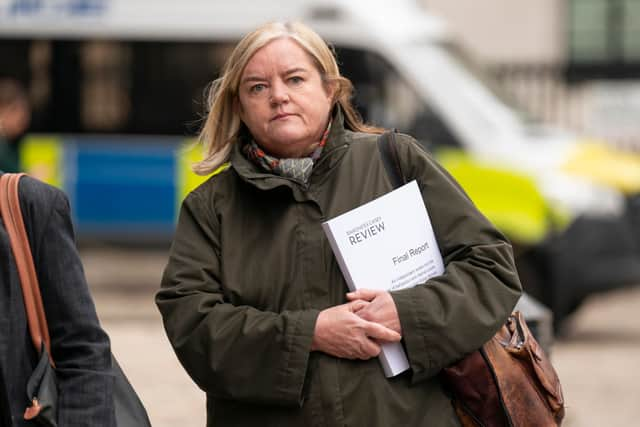Who is Baroness Casey? The woman behind 300-page report into the Met Police
People in this article
and live on Freeview channel 276
It's been a long year for Baroness Louise Casey, the woman who was appointed in February 2022 to lead an independent review into the Met police.
She was commissioned to undertake this report by the MET after the murder of Sarah Everard in 2021 by a serving police officer.
Advertisement
Hide AdAdvertisement
Hide AdBaroness Casey concluded her report in March 2023 and has now been sharing her findings. The main alarming facts found by the government official is that the Met are 'institutionally sexist, racist and homophobic'. If these findings are accepted by the MET, only a complete overhaul of staffing and culture can presumably suffice.
"The racist, sexist and homophobic abuses of power that have run rife in the Metropolitan police have shattered the trust that Britain’s policing relies on and let victims down," said Sir Keir Starmer, Labour Leader, commenting on Baroness Casey's findings.
"For 13 years there has been a void of leadership from the Home Office, which has seen Britain’s policing fall far below the standards the public have the right to expect.


"The scale of change required is vast. But the lessons I witnessed from policing reform in Northern Ireland show that it can be done."
Advertisement
Hide AdAdvertisement
Hide AdWe look at the woman behind this 300-page damning report and why her background equipped her for the mammoth responsibility which goes hand-in-hand with the depth and scope of the investigation.
Who is Baroness Casey?
Growing up near Portsmouth, Baroness Casey (57) became a graduate of Goldsmiths, University of London, with a history degree. She currently works in government, specifically in social welfare.
Baroness Casey began her professional life at the Department of Health and Social Security, where she administered payments for homeless people. Her work with the homeless has been wide-ranging as she also worked for St Mungo Association (a homeless charity) and she became the director of the Homeless Network in London. She then went on to work for Shelter in 1992 as deputy director.
Boris Johnson recognised the ability of Baroness Casey when he appointed her as an advisor to tackle homelessness in 2020. She was nominated for a crossbench peerage in July 2020.
Advertisement
Hide AdAdvertisement
Hide AdShe lives in north London and appears to lead a very private life.
She did infamously make a joke in the summer of 2005 at a dinner event about how, "Doing things sober is no way to get things done", in what was intended to be a tongue-in-cheek comment but which was seized upon by her enemies within the civil service.
Her frank style of talking and pragmatic approach has won her fans and she's been described as "very passionate" and focused on "delivery" when serving in Tony Blair's government as 'coordinator for respect'.
She's clearly respected across party lines in the House of Commons. No mean feat in a hugely divided political atmosphere.
Comment Guidelines
National World encourages reader discussion on our stories. User feedback, insights and back-and-forth exchanges add a rich layer of context to reporting. Please review our Community Guidelines before commenting.
